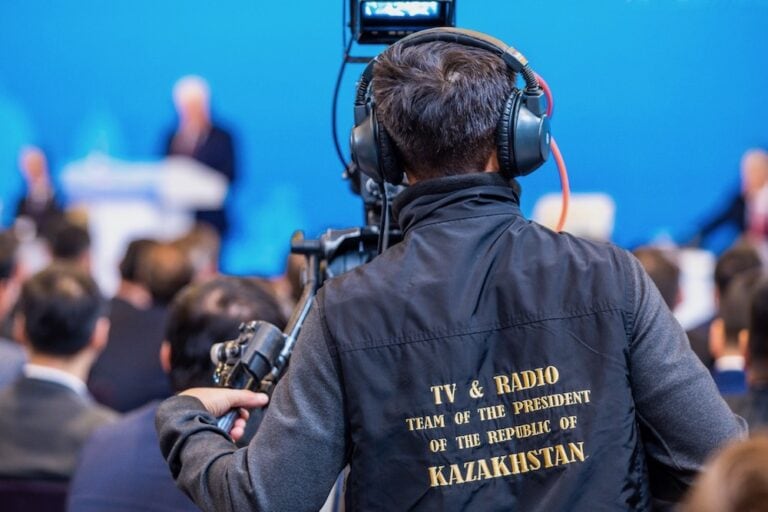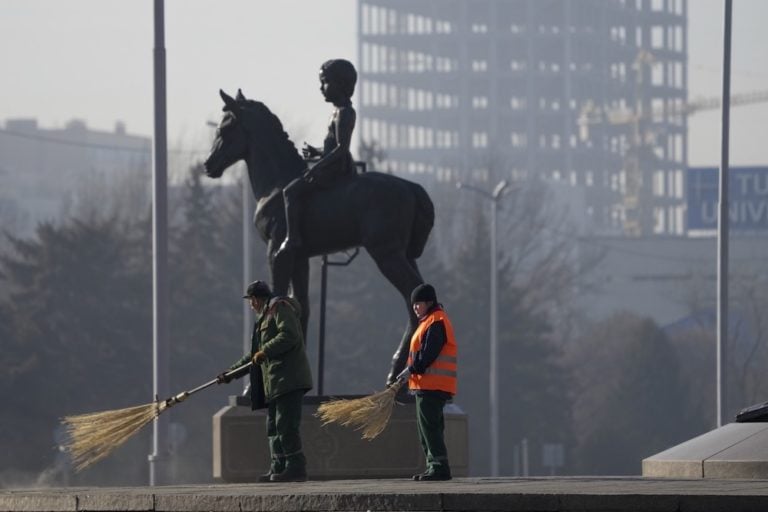(ARTICLE 19/IFEX) – The following is an ARTICLE 19 press release: ARTICLE 19 CONDEMNS RAID ON KAZAKH PUBLISHER ARTICLE 19 condemns the 27 January 2004 police raid on the offices of Kazakh publishing house Arsenal. The raid appears to be part of a pattern of harassment of Arsenal and its owners and managers, designed to […]
(ARTICLE 19/IFEX) – The following is an ARTICLE 19 press release:
ARTICLE 19 CONDEMNS RAID ON KAZAKH PUBLISHER
ARTICLE 19 condemns the 27 January 2004 police raid on the offices of Kazakh publishing house Arsenal. The raid appears to be part of a pattern of harassment of Arsenal and its owners and managers, designed to undermine its ability to exercise fully its right to freedom of expression.
Arsenal’s offices were raided by a team of police officers on 27 January 2004. The raid was formally justified by reference to charges of “malignant non-execution of a court decision” brought against Arsenal on 26 November 2003 for its failure to move the main wall of its warehouse by 70 centimetres, as ordered in a case originally decided in 2002. The police left after two and a half hours and confiscated Arsenal’s lists of employees, their contact details and an outline of their assignments. It is unclear how the raid in any way serves to further the legal process relating to the 2002 case. Vladimir Mikhailov, questioned during the raid and former Acting Director of Arsenal, has asked the authorities to explain how the list of members of Arsenal staff and a description of their responsibilities will help resolve the dispute.
Our sources suggest that the police behaved in an unnecessarily aggressive and inappropriate manner during the raid: the Arsenal security guards were bound and pushed into the police bus, cameramen were locked into the back rooms, other staff were forbidden to move around and all doors were blocked. Those questioned were not informed of their rights and minutes of these interviews were not taken. Furthermore, no document authorising the raid was produced.
This is the latest of a series of measures against the media group to which Arsenal belongs. In 2002, radio Rifma, owned by Mikhailov’s father and run by him, was closed for breaching the “Law about Languages”. In 1999, Diapason, founded by Rifma, was suspended for two months, after a violent campaign against it which included physical assaults on six of its staff. Two criminal cases are currently pending against Mikhailov, the first relating to articles he wrote in Diapason criticising local judges and the second relating to work on behalf of Rifma television between 1998 and 2001. Mikhailov’s brother Pelinskiy was violently attacked in December 2002 and left the country to seek medical treatment.
Diapason has a circulation of 33,000, more than ten times that of the official regional newspaper, and, together with radio Rifma, is one of the most popular media outlets in the region. Both Diapason and Rifma are well known for their criticism of the local administration and regional prosecutor’s office.


